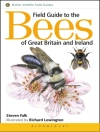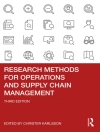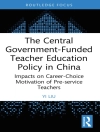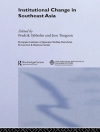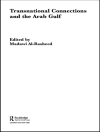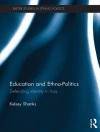Enhancing Communication & Collaboration in Interdisciplinary Research, edited by Michael O′Rourke, Stephen Crowley, Sanford D. Eigenbrode, and J. D. Wulfhorst, is a volume of previously unpublished, state-of-the-art chapters on interdisciplinary communication and collaboration written by leading figures and promising junior scholars in the world of interdisciplinary research, education, and administration. Designed to inform both teaching and research, this innovative book covers the spectrum of interdisciplinary activity, offering a timely emphasis on collaborative interdisciplinary work. The book’s four main parts focus on theoretical perspectives, case studies, communication tools, and institutional perspectives, while a final chapter ties together the various strands that emerge in the book and defines trend-lines and future research questions for those conducting work on interdisciplinary communication.
Inhoudsopgave
Chapter 1. Introduction – Stephen Crowley, Sanford D. Eigenbrode, Michael O′Rourke, & J. D. Wulfhorst
Chapter 2. Communication and Collaboration in Interdisciplinary Research – Julie Thompson Klein
Part I. Theory
Chapter 3. Communicating Complex Concepts – Rick Szostak
Chapter 4. Training the Next Generation of Transdisciplinarians – Daniel Stokols
Chapter 5. Beyond Common Ground: A Transdisciplinary Approach to Interdisciplinary Communication and Collaboration – David A. Stone
Chapter 6. Interdisciplinarity, Communication, and the Limits of Knowledge – Robert Frodeman
Part II. Case Studies
Chapter 7. Rising to the Synthesis Challenge in Big-program Interdisciplinary Science: The QUEST Experience – Sarah E. Cornell & Jenneth Parker
Chapter 8. Enhancing Interdisciplinary Communication: Collaborative Engaged Research on Food Systems for Health and Well-being – Ardyth H. Gillespie & Guan-Jen Sung
Chapter 9. Discourse Communities, Disconnects, and Digital Media: The Case of Relocalizing Economies for Sustainable Agriculture and Energy Systems – Casey Hoy, Ross Mac Donald, Benson Lee, & Steve Bosserman
Chapter 10. Conceptual Barriers to Interdisciplinary Communication: When Does Ambiguity Matter? – Paul E. Griffiths & Karola Stotz
Part III. Tools
Chapter 11. Seeing through the Eyes of Collaborators: Using Toolbox Workshops to Enhance Cross-Disciplinary Communication – Chris Looney, Shannon Donovan, Michael O′Rourke, Stephen Crowley, Sanford D. Eigenbrode, Liela Rotschy, Nilsa A. Bosque-Perez, & J. D. Wulfhorst
Chapter 12. Integration of Frameworks, Theories, and Models across Disciplines for Effective Cross-Disciplinary Communication – Wayde C. Morse
Chapter 13. Modeling as a Tool for Cross-Disciplinary Communication in Solving Environmental Problems – Laura Schmitt Olabisi, Stuart Blythe, Arika Ligmann-Zielinska, & Sandra Marquart-Pyatt
Part IV. Contexts
Chapter 14. Interdisciplinarity as a Design Problem: Toward Mutual Intelligibility among Academic Disciplines in the American Research University – Michael M. Crow & William B. Dabars
Chapter 15. Defining 21st Century Land-Grant Universities through Cross-Disciplinary Research – M. Duane Nellis
Chapter 16. Institutionalizing Interdisciplinary Graduate Education – Maura Borrego, Daniel Boden, David Pietrocola, Carol F. Stoel, Richard D. Boone, & Melur K. Ramasubramanian
Chapter 17. Supporting Interdisciplinary Collaboration: The Role of the Institution – L. Michelle Bennett & Howard Gadlin
Part V. Conclusion
Chapter 18. From Toolbox to Big Science Project: A Bold Proposal – Gabriele Bammer
Over de auteur
J.D. Wulfhorst is Professor of Rural Sociology and Chair of the Board of Advisors for the Social Science Research Unit (SSRU) at the University of Idaho. He received a BA in Interdisciplinary Studies from Appalachian State University, an MS in Sociology from the University of Kentucky, and a Ph D in Rural Sociology from Utah State University. He has expertise in risk perceptions, constraints to adoption of technology in farm systems, conflict in rangeland management, and the negotiated order(s) of natural resource management. Recently, he has begun work in the area of climate science related to agricultural systems, societal adaptation, and community resilience. He has developed a niche as a social scientist collaborating with interdisciplinary teams addressing natural resource and agricultural challenges within the western United States. As a member of this editorial team, J.D. has developed an interest to pursue ongoing analyses of team-based research processes especially with respect to how social dynamics affect groups with turnover and institutional change.




